Over 8,000 Oil Workers Go on Strike Demanding Higher Wages
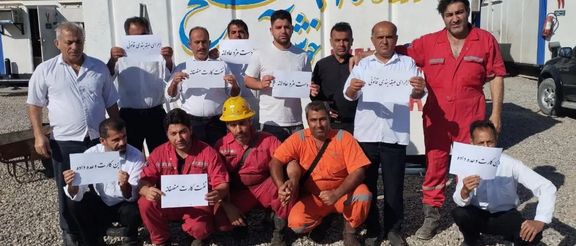
Over 8,000 oil project workers across more than 60 contracting companies have launched a strike throughout various regions of Iran.

Over 8,000 oil project workers across more than 60 contracting companies have launched a strike throughout various regions of Iran.
The strike, which began this past Wednesday, was organized by the Council for Organizing Oil Contract-Workers' Protests, demanding changes including wage increases and a more humane work schedule.
In recent years, Iran's oil and gas industry has increasingly substituted regular employees with contract workers, subjecting them to tough working conditions and low wages.
The striking workers are not only challenging their immediate labor conditions but are also advocating for broader reforms in the industry, emphasizing the necessity for improved dormitory conditions and enhanced safety measures in the workplace.
These protests are part of a larger trend of increasing labor unrest in Iran, where workers have been consistently voicing their grievances over delayed wage payments, low wages, arbitrary layoffs, and the negative impacts of privatization policies.
Compounding the tensions, protesting workers have been receiving threatening text messages from supporters of the contractors, a move seen by many as an attempt to suppress the growing dissent, according to Alireza Mirghaffari, a member of the board of the Supreme Council of Labor Associations.
Over the last six years, the value of Iran's national currency, the rial, has plummeted by fifteen times, leading to rampant inflation and widespread poverty among millions of Iranians.
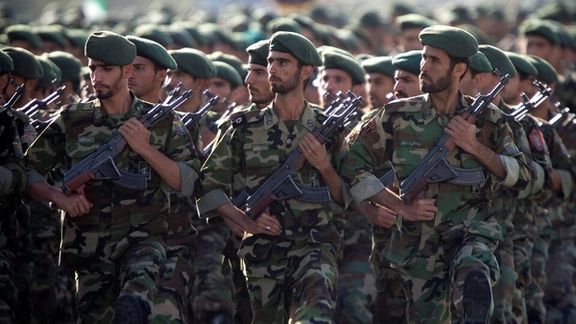
The Canadian government's designation of the Revolutionary Guard (IRGC) as a terrorist entity provoked diverse reactions from Iranians: the authorities expressed profound outrage, while many citizens welcomed the decision.
Shortly after the announcement, the Canadian Foreign Minister advised against travel to Iran, citing increased risks of arbitrary detention for Canadians.
The Iranian Foreign Ministry Spokesman, Nasser Kanaani, did not mince his words, denouncing the move as 'disgusting' and an irresponsible and "provocative continuation of Canada's longstanding policies." Similarly, Kazem Gharibabadi, Deputy for International Affairs of Iran's hardliner Judiciary, did not hold back, labeling Canada’s decision as 'hostile' and emphasizing the IRGC's importance for Iran's national security and regional anti-terrorism efforts.
Iran's Foreign Ministry summoned the Italian ambassador, who represents Canadian interests in Tehran, to protest Ottawa's decision, condemning the move as "unlawful and internationally illegal."
Meanwhile, the Iranian community in Canada rejoiced, having played a pivotal role in pressuring the Canadian government to designate the IRGC, driven notably by families of the victims of flight PS752, which was shot down shortly after departing Tehran's international airport in January 2020.
Hamed Esmaeilion, a Canada-based activist who lost his family aboard flight PS752, told Iran International that designating the Guards sends a supportive message to Iranians worldwide and provides a sense of justice to families of IRGC victims.
Ardeshir Zarezadeh, director of the International Center for Human Rights in Canada, remarked that this is a significant step because "the IRGC, rather than the government, is the principal power" in Iran.
“This move is likely to prompt more countries to add the IRGC to their terror lists, further restricting trade and diminishing IRGC's influence,” Zarezadeh told Iran International.
Numerous Iranians worldwide also voiced their jubilation through voice and video messages to Iran International, urging more countries to follow suit.
The psychological impact on people close to IRGC members was noted by one individual, who pointed out that "even within their own families, the IRGC elements are not respected", and even more so now if they lose the prestige of money and a Canadian visa.
Another described Canada's move as a "turning point," eliciting joy among more Iranians worldwide.
According to another individual, this step “may be the catalyst for European nations to classify the IRGC as a terrorist organization and impose sanctions on them.”
Despite this, some individuals were content with the move but more pessimistic in their outlook.
A citizen remarked on the "formidable influence of the IRGC", questioning whether the designation as a terrorist organization, despite being a positive step, would bring about substantial change, pointing to Hamid Nouri's release from prison in Sweden, the individual underscored that the IRGC operates akin to a “global mafia, interacting extensively with security institutions worldwide.”
Hamid Nouri, a former Iranian official convicted of war crimes, was exchanged in a prisoner swap between Sweden and the Islamic Republic earlier this month.
Critics denounced the Swedish government's actions as "dangerous". They warned of "far-reaching consequences," asserting that such measures bolster Iran's strategy of diplomatic hostage-taking, resulting in numerous dual nationals being incarcerated in Iran without clarity or resolution.
The designation also sparked international calls for action, especially from Australian senators who have criticized their government for its reluctance to consider listing the IRGC.
Yet, governmental decisions on this matter have been shaped by endeavors to mollify Iran amid its nuclear program, as exemplified in the EU and the UK. Still, they have imposed targeted sanctions against Iran for its destabilizing activities and proliferation of weapons.
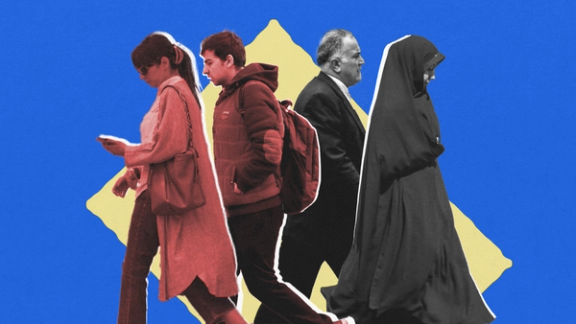
Iranians can vote for a new president on June 28, after the death of Ebrahim Raisi in a helicopter crash last month. How many will vote, we just don’t know - a report from Tehran.
Turnout was over 80 percent in 2009, but it dropped below 50 percent in 2021. This time, it will likely be closer to the latter than the former. Just how close, whether higher or lower, is hard to predict. However, two things can be said with almost certainty: first, Islamic Republic officials will label it a ‘glorious’ election, regardless of the turnout, and second, many millions—possibly a majority—will abstain from voting.
"We once thought there was a glimmer of hope,” says Zohreh, 36, who is trying to launch a tiny catering business from the kitchen in her apartment. “We thought things would get better if we kept voting for the least bad candidate, anyone even slightly better than the hardline fundamentalists. But now we know better.”
In May 2017, the ‘moderate’ incumbent, Hassan Rouhani, won his second term as president, riding high on widespread optimism in the wake of the 2015 nuclear deal –a deal he had vowed to get in his first election campaign in 2013. Standing for reelection, Rouhani spoke of a better future with moderate Reformists, and many believed him. His promise turned out empty six months later, however, leaving many Iranians full of rage, those struggling financially in particular. In December 2017, these took to the streets across Iran, chanting a new, momentous slogan: "Reformists, Conservatives, the Game is Over."
Up until then, Iran’s polity was characterized by and viewed as a never-ending power struggle between two broadly defined camps: those seeking reform and those sticking to the theocracy’s founding ‘principles’ (hence the term Principlist). The two forces dominated Iranian politics until that fateful winter, when the protesters made it clear that they no longer believed in this dichotomy; that they saw them as two cheeks of the same backside that had to be kicked.
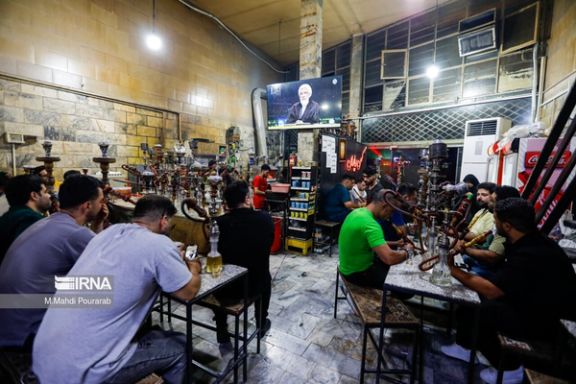
Zohreh is typical in this sense. She used to vote “until 2017”, she says. But the way the “supposedly moderate” Rouhani treated the protestors made her think twice. And then came the “double crimes” in November 2019, when hundreds of impoverished Iranians were shot dead for daring to protest against a sudden rise in gasoline prices. In January 2020, the Revolutionary Guard shot down a Ukrainian passenger plane over Tehran, killing all 176 onboard. These were the “final nails in the coffin”, Zohreh says. She lost all hope in ‘reform’. The game was over for her.
“I’m surprised that some still believe in change through the ballot box and encourage others to do the same,” she adds. “For me, taking part in elections has lost all meaning. But I don’t argue with those who see some benefit in voting. I think everyone should be left free to act according to their judgment.”
When first heard in 2017, the “Game is Over” slogan was truly radical. Not many believed in it, and even fewer were willing to say it out loud. However, it quickly resonated with people and became a self-fulfilling prophecy, relieving the state of the burden to maintain its facade. In the parliamentary elections of 2020, the presidential vote of 2021, and the March parliamentary elections in 2024, ‘moderates’ regime insiders were purged. While different groupings and faces remained, they were all "soldiers" on one front, displaying absolute loyalty to their supreme leader, often referred to as "the System."
Unsurprisingly, voter turnout plunged, reaching historic lows of 40 percent –and as low as half that in larger cities. But that trend can change on June 28. The snap election seems to be drawing some interest, however minimal, mainly from those who feel they still have a lot to lose.
“I was sure I wouldn’t vote until a few weeks ago,” says Pouria, 43, who has a relatively well-paid job in the private sector. “But I’m not so sure now. I’m going to watch the debates and see what the candidates have to say before making a decision.” Pouria has voted only twice, in 2009 and 2017, on both occasions for the ‘Reform’ candidate. He says he’s been “pleasantly surprised” that a “moderate” has been allowed to stand.
The ‘moderate’ is Masoud Pezeshkian, a surgeon, former health minister and multi-term lawmaker. He has energized the career ‘reformists’ who have been pushed aside to the point of irrelevance by loyalists of Supreme Leader Ali Khamenei, but still surface every election to arrogantly remind people that they’re still the only hope to challenge the hardliner hegemony. They seem untroubled by the fact that the candidate they’re claiming as their own is all too careful not to be associated with them. Not only that, but he has also proudly confirmed that he’s just another ‘soldier’ and cannot be expected to affect much change.
Still, some like Pouria feel that Pezeshkian may be worth their vote. They have no “illusion” that he can “improve” their lives. They just hope that he can at least “slow” the nation’s downward march towards “total misery”. But even this seems to be a minority view. Pouria says he doesn’t feel comfortable telling his friends that he is “undecided”, fearing they might distance themselves from him. “They say the regime's intentions are clear,” Pouria says. “They think Pezeshkian is just there to improve the recent abysmal turnout. And so, they view voting as collusion with tyranny.” But for Pouria, “it’s not a moral question.” He prefers to be “pragmatic”, especially as he believes that “revolution or overthrow is impossible” now.
This line of reasoning has previously carried some undecided or reluctant Iranians to the polling stations. There are still some activists who argue this case, trying to convince others not to “forgo” their choice.
“The lets-vote crowd prefer to ignore the fundamental questions,” says Maryam, visibly irritated. She is 28 and works as a PE teacher at a middle school in Tehran. "Their ‘bad vs worse’ argument is so expired,” she says. “Why should we vote again? Did they not block all avenues for change the last time we voted? Did they not appoint ministers and reduce the president to a mere butler? Did they not kill children to remain in power [in 2022]? Where are the signs that this time our vote can change anything?”
Maryam jokes that she ruined her day with my questions. There’s very little appetite for these conversations. It’s no more like pre-2020 when friends tried to convince one another to ‘take part’ or ‘boycott.’ Heated debates, very common until a few years ago, are almost non-existent. Most people seem to have moved on from elections as a means of change. For the young, the penniless, and the women, above all, who face the brunt of the Holy System every day, that game seems to be well and truly over.
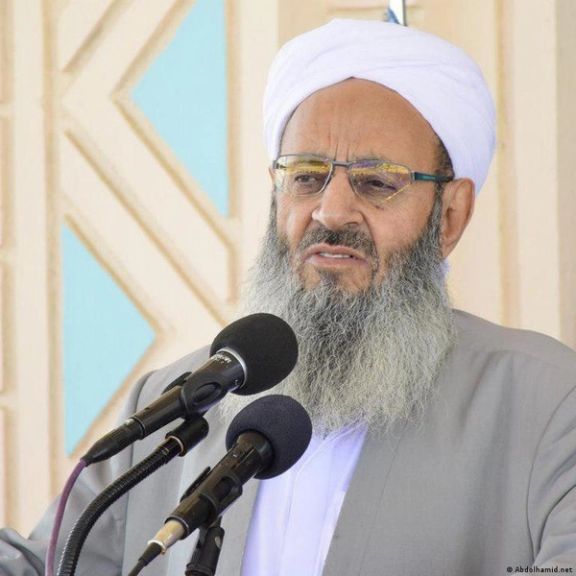
The office of Iran's leading Sunni cleric, Mowlavi Abdolhamid, denied reports that he had endorsed any candidates in the upcoming presidential election.
While Abdolhamid had previously supported late President Ebrahim Raisi and reformist-backed candidates, he recently criticized both 'reformist' and conservative factions for their ineffective governance. “Despite their promises, the previous administrations failed to deliver. Reformists also failed to bring about a meritocracy system,” he stated. “We talked to the fundamentalists [conservatives] about national and regional problems, but they didn't show any real commitment to solving them.”
Abdolhamid emphasized the limited authority of past presidents, suggesting that "affairs are overseen from elsewhere," likely alluding to Supreme Leader Khamenei's control over decisions. He also raised concerns about the state's transparency and accountability.
Historically, any candidate with Abdolhamid's support won the election in the mostly Sunni populated Sistan-Baluchistan and Kordestan provinces. His popularity stems from his willingness to challenge Supreme Leader Ali Khamenei's authority. Abdolhamid has spoken out against discrimination faced by women, ethnic and religious groups, and minorities since the establishment of the Islamic Republic in 1979.
Previously, Abdolhamid supported Reformist President Mohammad Khatami (1997-2005) and moderate conservative Hassan Rouhani (2013-2021). He encouraged Iran's Sunni population to back ultraconservative Ebrahim Raisi in the 2021 presidential election but later criticized Raisi for failing to fulfill promises to the Sunni community. Following the killing of over 100 Sunnis in Zahedan during the 2022 protests, some criticized Abdolhamid for having supported Raisi.
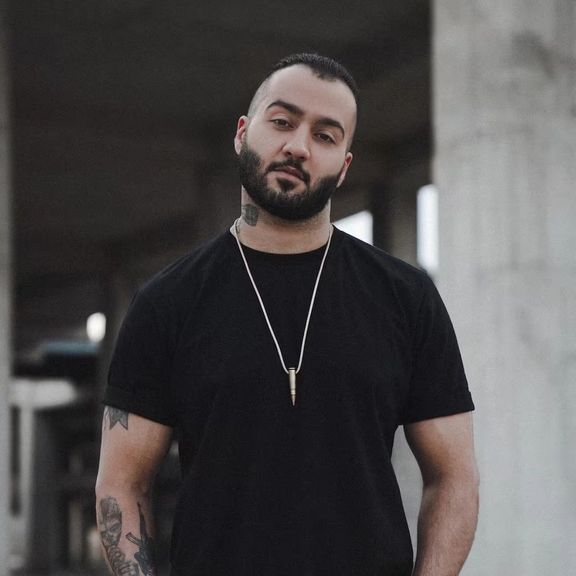
Iran’s Supreme Court has overturned the death sentence of jailed Iranian rapper Toomaj Salehi that had shocked millions of Iranians and human rights defenders, as well as politicians in the West.
“The Supreme Court avoided an irreparable judicial error. The death sentence of Toomaj Salehi was overturned and based on the appeal decision of the 39th branch of the Supreme Court, the case will be referred to the parallel branch for consideration,” Salehi’s lawyer, Amir Raisian wrote on X.
Salehi was sentenced to death by a revolutionary court in Esfahan in April this year on charges of "spreading corruption on Earth."
Reisian, in an interview with Shargh, stated that the Supreme Court overturned the verdict arguing that the sentence of 6 years and 3 months was issued during the court proceedings for Salehi, so any sentence harsher in the subsequent stages of the trial is inconsistent with the law.
"The Supreme Court suggested that even the previous sentence" had been issued "without adhering to laws," Reisian said referring to the initial jail term issued before the death sentence.
Mostafa Nili, another lawyer for Salehi, in a separate interview mentioned that the Supreme Court also pointed out that two criminal charges have been considered for a single act.
For instance, Salehi has been convicted for spreading lies online and offline and that’s against the penal law, Nili said.
Salehi, the 2024 Václav Havel International Award laureate, has faced a tumultuous legal battle in Iran since his arrest multiple times by security forces, notably in October 2022 for supporting nationwide protests sparked by the death of Mahsa Amini in the custody of the morality police.
Initially sentenced to 6 years and three months in July 2023, Salehi was granted bail on November 18, 2023. However, less than two weeks later, the 32-year-old dissident rapper was re-arrested on new charges of "publishing falsehoods" after releasing a video detailing his torture experiences in custody, as reported by Raisian.
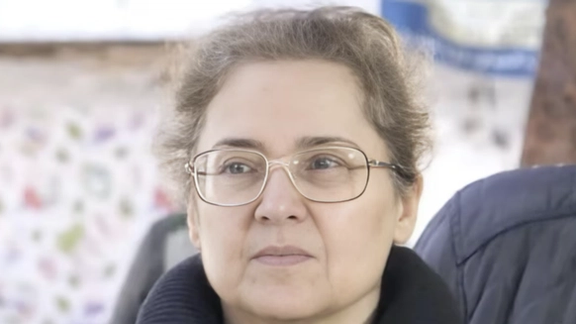
Iranian female Islamic scholar Sedigheh Vasmaghi has contended that participating in the upcoming snap presidential elections will bolster the Islamic Republic's authority.
“When voter turnout is low, the ruling factions lose confidence, but high turnout empowers and validates them,” the academic wrote on her Instagram account on Friday.
“I view the people's vote as a valuable social and national asset that should not be squandered or benefit those responsible for current issues,” she added.
Previously, she cautioned "reformist" politicians against becoming ensnared in an unchangeable political system and "falling into the trap of tyranny."
Vasmaghi argued that currently, the Islamic Republic "is unable to confront the powerful and pervasive wave of change that has infiltrated its own ranks."
"In this context, to resist this tide, the ruling establishment has no alternative but to collaborate with a spectrum of reformists—a spectrum that is not threatening but rather enhances its authority."
Vasmaghi was detained in March for denouncing Supreme Leader Ali Khamenei as a dictator and criticizing compulsory hijab laws. Her health deteriorated during imprisonment, leading to her eventual release.
During her incarceration, Vasmaghi wrote to the United Nations Fact-Finding Mission and international human rights organizations, detailing the mistreatment she had to face and highlighting Iran's systemic oppression, especially towards women.